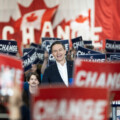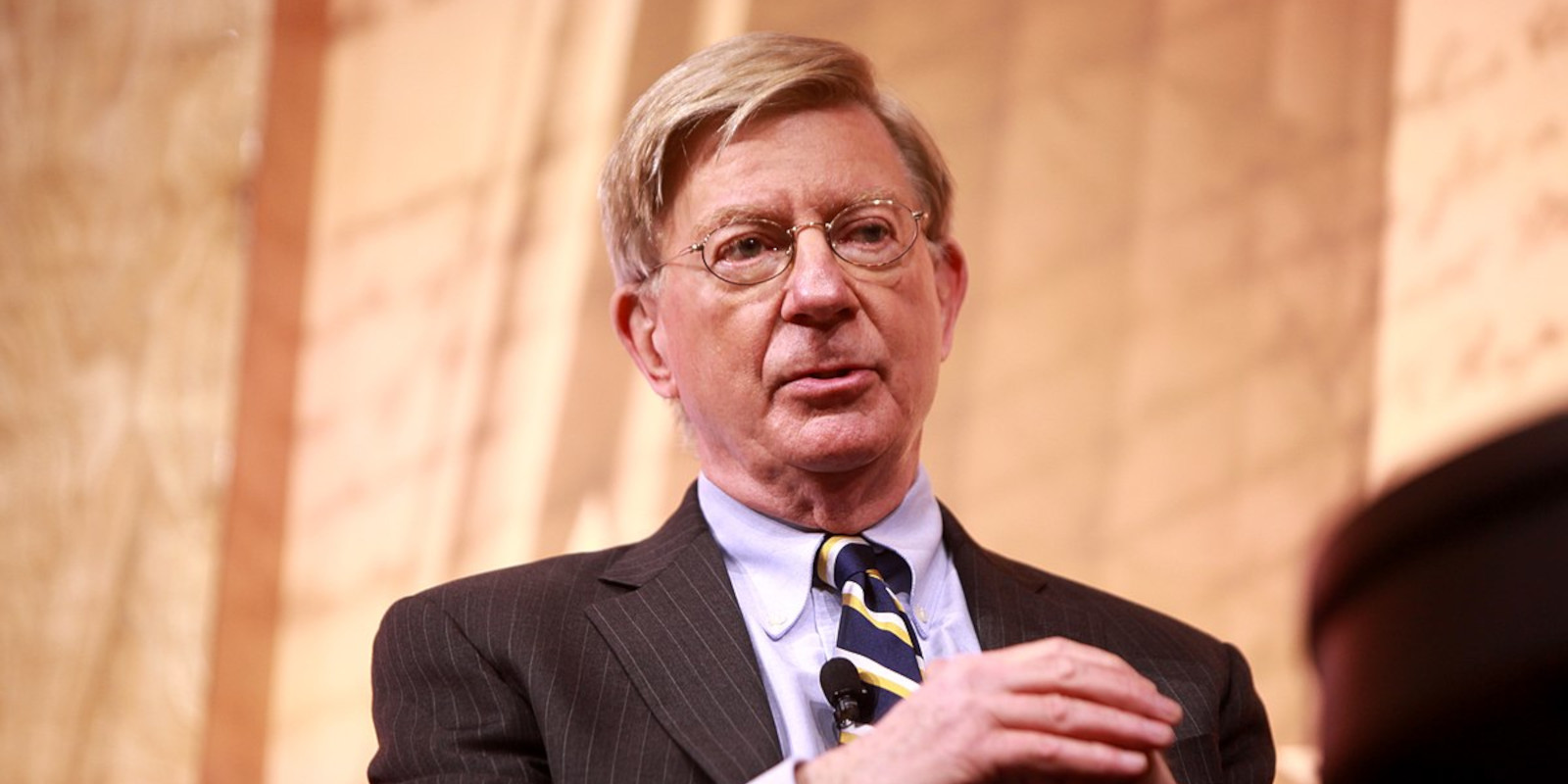If there’s a common thread through the life of George Will, the conservative columnist and intellectual who has been influencing American politics for 50 years, it’s likely the sport of baseball.
Growing up in Champaign, Illinois, Will was an equal distance between Chicago, where the White Sox and Cubs play, and St. Louis, where the Cardinals play.
“At an age too tender to make life-shaping decisions, I had to choose, and I chose the Cubs. All my friends became Cardinals fans and grew up cheerful and liberal. And I became a gloomy conservative,” said Will, in a conversation with David Axelrod.
“Losing is supposed to build character and boy, do I have character,” he said.
In a conversation today with The Hub’s editor-at-large Sean Speer, Will discusses his lonely outpost in American conservative politics after the Trump years, his gradual shift toward stronger libertarianism and, of course, the pennant prospects of the Toronto Blue Jays.
At 80 years old, Will has had a remarkable career in journalism but, without baseball weighing heavily in his decision-making, he may have spent his life as a relatively unremarkable lawyer.
When he had to choose between Harvard Law School and PhD studies at Princeton, Will settled for Princeton because it was midway between two National League baseball cities: Philadelphia and New York. The decision between those two schools was the difference between embarking on a law career and becoming an academic, and it was his eventual career as an academic that brought him to Washington, D.C. and a life as a political writer.
Will’s opinion-writing has earned him a syndicated column, a Pulitzer Prize, and a reputation for erudition. His profile was even large enough in the 1990s to win him a mention on the sitcom Seinfeld, in which Kramer describes him as an attractive man, although admits that he doesn’t “find him all that bright.”
Will taught briefly at the University of Toronto until Gordon Allen, a United States senator and chairman of the Republican policy committee, decided he wanted a Republican academic to write for him.
“It was 1969. There were no Republican academics except me, and I was in Canada,” said Will, in a conversation with David Axelrod.
Will took the job in D.C., almost entirely due to curiosity as a fledgling political scientist, hoping to see how things were done in the real world.
He had planned to go back to Toronto until he accidentally talked himself into a job at National Review magazine, which was becoming a raucous and influential voice on the right. (One wonders if Will would have been more inclined to stay in Toronto if the Toronto Blue Jays baseball team, which was founded in 1977, had arrived on the scene a few years earlier).
In a conversation with the magazine’s founder, William F. Buckley, Will argued that National Review needed a Washington editor.
“Bill essentially said, ‘you’re right I do, and you’re it,'” said Will.
Will started his job in 1973, right in the thick of the Watergate scandal, and his drumbeat of columns criticizing Richard Nixon caused an uproar among the magazine’s readership and donors, so much so that Will noticed that “subscription cancellations and George Will” were essentially the same category in the monthly National Review mail analysis.
In the Donald Trump years, Will led a similar drumbeat against the Republican president, who he argued had a “comprehensive disdain for conservative essentials.” Forty years later, Will was similarly politically homeless and the target of ire from people who had previously considered him an ideological ally.
On the issues, though, he has mostly remained steadfast, although he has leaned more into his libertarian sensibilities and has grown to further appreciate the benefits of the free market.
One of Will’s primary concerns right now is the potential for generational conflict brought about by the “tremendous social achievement” of increased human longevity. With an ageing population, free-spending governments, and entitlement programs that are an ever-increasing part of government budgets, the burden on new generations is rising.
“The elderly are looting the futures of the rising generation,” said Will, in a conversation with Russ Roberts on the EconTalk podcast
In that episode, Roberts paused the episode to marvel at Will’s ability to recall facts and quotations from memory, with no crib notes or notepad in front of him.
“How do you keep track of this? Do you have a technique? Do you have a system? Or do you just have a big brain?” asked Roberts.
“I blame baseball. I grew up memorizing statistics and thinking about Jimmie Foxx. I shudder to think how many of my brain cells are devoted to this. It just sticks,” said Will.
Recommended for You

‘It’s not yeehaw, it’s yahoo’: Tim Hudak and Anila Umar on why the Calgary Stampede is the ultimate political and cultural equalizer

Brian Lee Crowley: Why George Grant was wrong about pretty much everything

‘I want to make Canada a freer country’: Conservative MP Andrew Lawton talks being a newbie in Parliament, patriotism, and Pierre Poilievre’s strategy

‘We have to cap population growth’: Ten quotes from Pierre Poilievre’s EXCLUSIVE Hub interview



